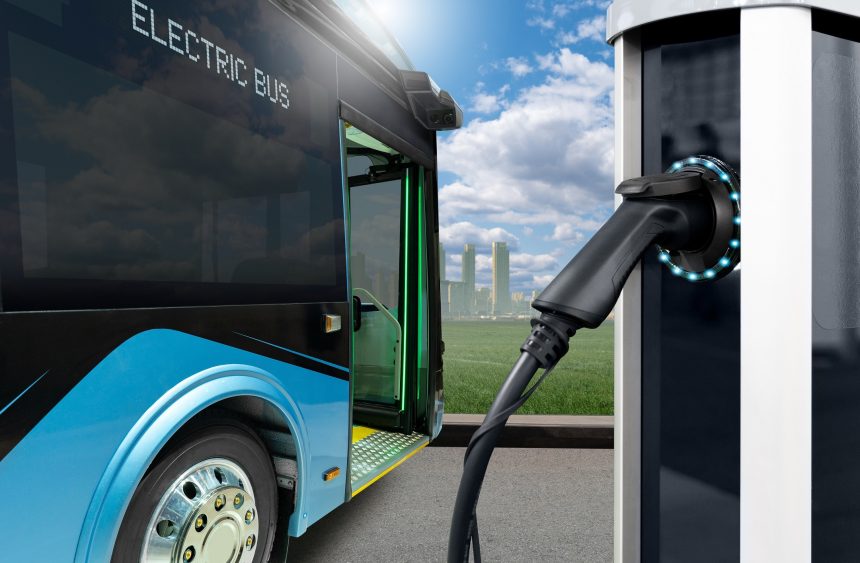In a world grappling with the dual challenges of climate change and urban pollution, the transportation sector stands at a critical crossroads. There are 1.56bn vehicles on the road, 16% of which are commercial, creating 40% of road emissions, the imperative to transition to emission-free alternatives has never been more urgent. Among the array of solutions emerging, electric buses offer promising avenue, offering cleaner, quieter, and more sustainable mass transit options.
However, despite the clear advantages of electric buses, barriers to widespread adoption persist. Infrastructure constraints, including the availability of charging infrastructure and grid capacity, remain significant challenges to deployment. Moreover, range anxiety, that is the availability of charging stations, poses operational challenges for bus operators, particularly in rural areas. Energy management holds the key to addressing the lingering concerns surrounding the viability of electric bus fleets.
The Transition to Electric Buses: Motivations and Challenges
Several factors are propelling the shift towards electric buses. Concerns over air quality, especially in densely populated urban areas, have spurred governments and municipalities worldwide to seek cleaner transportation alternatives. Simultaneously, advancements in battery technology, coupled with decreasing costs, have made electric buses increasingly feasible and cost-effective.
While electric buses offer evident benefits, obstacles hinder their widespread adoption. Challenges like limited charging infrastructure and grid capacity persist, alongside operational issues like range anxiety, especially for bus operators in rural regions.
Energy management (EM) emerges as a transformative solution to address these challenges effectively. By meticulously planning and optimising energy usage, energy management systems alleviate concerns regarding range limitations, charging infrastructure, and operational efficiency, thereby driving the widespread adoption of electric bus fleets.
Energy management explained
Energy management encompasses a variety of practices and technology solutions. The most critical element to the EM operation for fleets is the use of EV load management.
Put simply, EV load management is the ability to control how much energy an EV charger dispenses to a vehicle. EV load management calculates the available power and safely distributes energy to the connected vehicles without compromising the grid or the power to other on-site facilities. There are a few different EV load management technology types, but the two most used by fleets are ‘static’ and ‘automatic’.
Static Load Management (SLM) allows you to set a fixed power limit for a group of EV chargers. That fixed (or status) power limit is then shared evenly between all charge points and cannot be exceeded by an individual or group of chargers collectively.
Automatic Load Management (ALM), also known as Dynamic Load Management, allows you to set a flexible power limit for a group of EV chargers. Throughout the day, ALM constantly monitors the power supply of the entire site and balances the rate of all chargers in line with the fluctuating power availability on site and the demand of each actively charging vehicle.
Go-Ahead Croydon doubles its charging capacity with EO Hub
The Go-Ahead Group (Go-Ahead) is the largest bus operation in London and is on a mission to have a zero-emission bus fleet by 2035. One of the barriers to enabling full fleet electrification across all its depots was the available power on some of its sites. In April 2021, Go-Ahead appointed EO Charging to support its electrification journey and solve its power problem. EO installed its EM solution at its Croydon depot. EO’s role in the project was to provide a full turnkey solution and install EO Hub, EO’s energy.
The EO Hub enabled Go-Ahead to almost double the fleet of electric buses operating on-site. Through load management, Croydon was able to charge buses during off-peak hours, increasing their charging capacity from 1.5 MW to 3.4 MW. Remarkably, despite having a power supply of 1.5 MW, the hub consistently manages the delivery of >8 MW of power each night.
EO Hub made it possible for Go-Ahead to operate 42 buses from a limited supply, lowering costs and helping to deliver on their strategy towards a zero-emission bus fleet by 2035.
Energy management systems are poised to alleviate anxieties regarding range limitations, charging infrastructure, and operational efficiency through meticulous planning and constant optimisation. As such, EM emerges as a solution and a transformative force, propelling electric bus fleets towards widespread adoption and solidifying their role as a cornerstone of sustainable transportation. Implementing EM solutions doesn’t have to be complicated or divert bus operators from their primary focus. Instead, tangible cost-saving outcomes can be attained by employing various on-site strategies. These include selecting appropriate electricity tariffs, implementing energy-efficient practices, and adopting EV load management techniques. In many cases, utilising EM and load management will enable a bus depot to forego a grid extension, saving sustainable costs in the near term.
To find out more about energy management for the bus sector you can download the full whitepaper here.




























